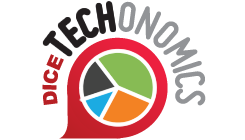Some tech companies—Google notably among them—are de-emphasizing the use of test scores and GPAs in their hiring, and that's causing colleges and universities to re-think their approach to technical education, says
Tech Page One. One reason can be summed up in this quote Google’s senior vice president of people operations, Laszlo Bock,
gave to New York Times columnist Tom Friedman: “When you look at people who don’t go to school and make their way in the world, those are exceptional human beings. And we should do everything we can to find those people.”
Click here to find entry-level tech jobs. To Bock, some past accomplishments
aren’t very important. College GPAs and test scores, he said, are “worthless” when it comes to hiring. Though good grades can help for jobs that require heavy math, computing and coding skills, ultimately they won’t be a deciding factor in who comes on board. In fact, the proportion of Googlers without college degrees has been rising. Meanwhile, a study on New York City's tech sector noted that
44 percent of its technology jobs don't require a bachelor's degree. The result is "well-paying and quality jobs for New Yorkers at all levels of educational attainment," said Kate Wittels, director of HR&A Advisors, which conducted the study. Tech professionals without a college education earn an average of 45 percent more than non-tech workers with similar academic credentials. That means IT can be an attractive career path for high school graduates, Tech Page One notes, especially as college costs rise. In response to all this, colleges and universities are adding more of a real-world focus to their career-development efforts. They're offering more cooperative programs and internships, and scholarships aimed at technology-minded students who might otherwise not be able to afford their costs. For some students, the availability of such programs has become a key factor in their decision of which school to attend. Skills—not just theory—are getting more attention. For example, Stanford now requires that computer science majors develop skills in a chosen concentration, including artificial intelligence or graphics. "Specific requirements and specialized coursework make students experts in these niches, better preparing them for the workforce," writes Tech Page One's Norman Rozenberg. On the East Coast, Philadelphia's Drexel University has a long-standing program offering cooperative opportunities with employers like
Comcast,
Microsoft,
Siemens and
Unisys. As part of the program, students alternate quarters between full-time academics and full-time work. In many ways, the focus here is on a candidate’s ability to learn in ways that go beyond books: the ability to process pieces of information and dynamics quickly, form them into a whole, and then act on them. This doesn’t mean technical ability is going to be less important, but it may indicate that how you
get that ability will become a lesser part of the equation.
Upload Your ResumeEmployers want candidates like you. Upload your resume. Show them you're awesome.
Related Articles
Image: Cogswell.edu 

